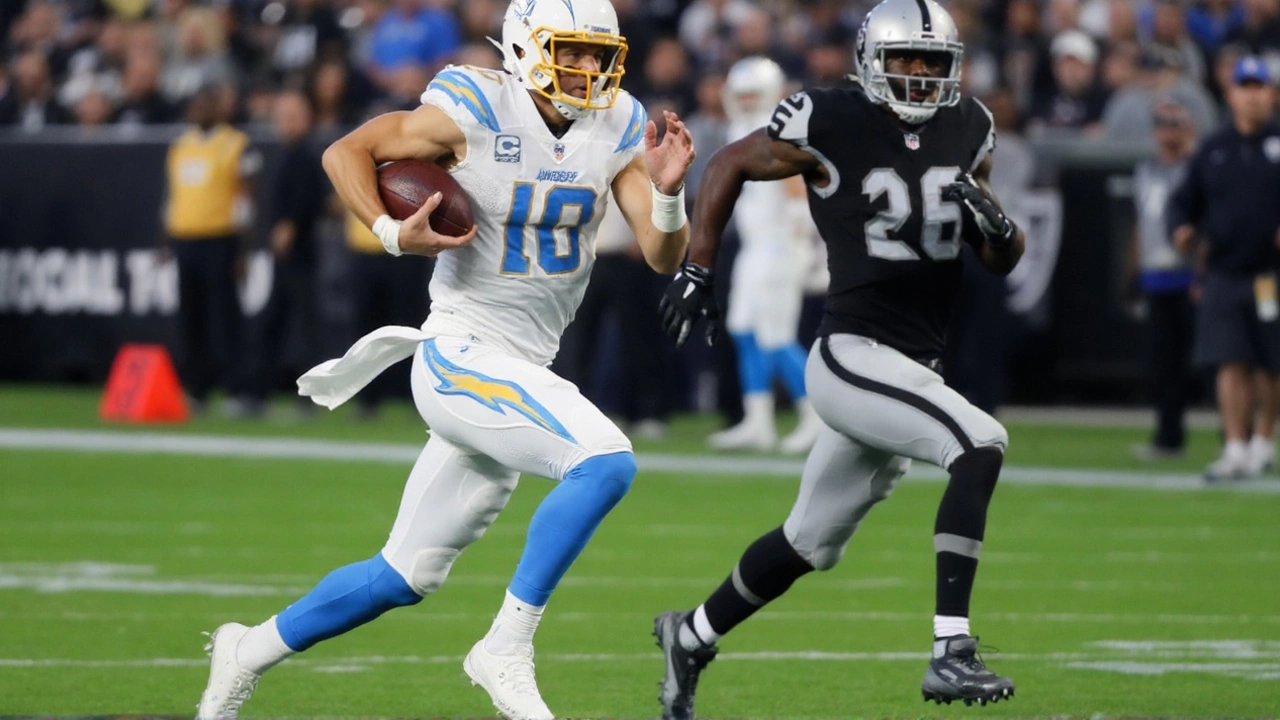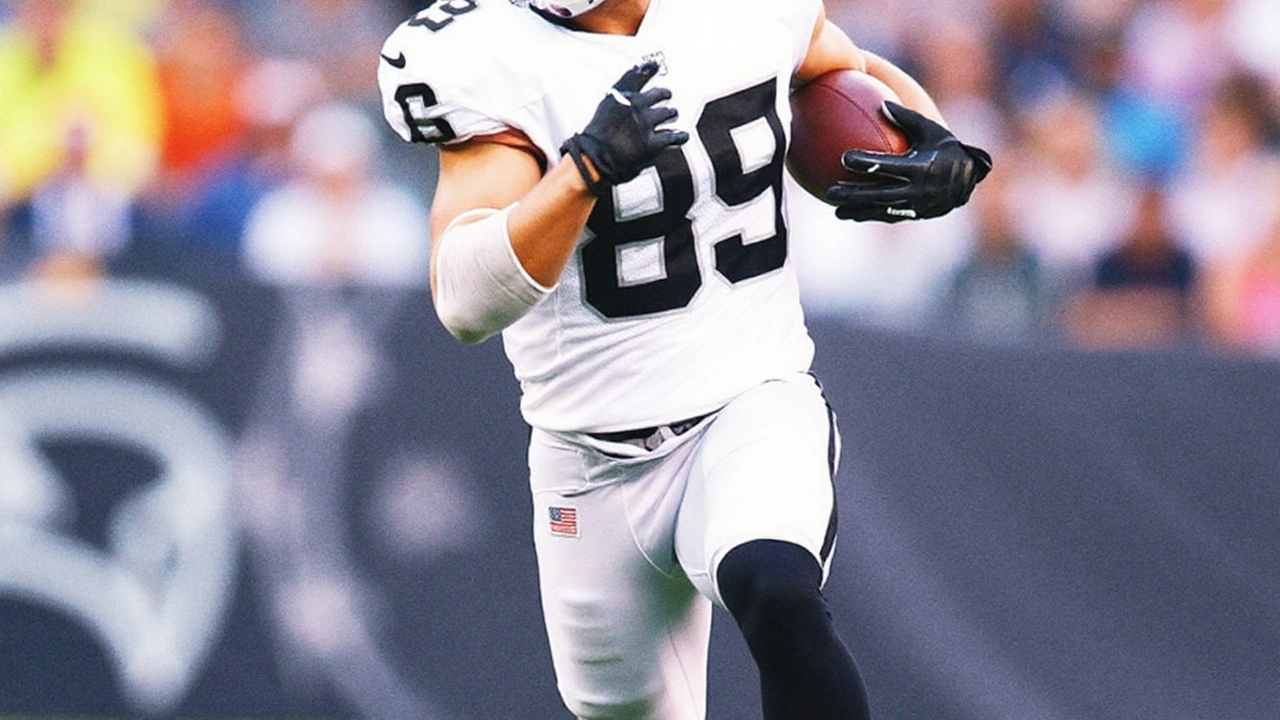In a prime-time showcase at Allegiant Stadium, the Los Angeles Chargers handled business against the Las Vegas Raiders, 20-9, and did it with a steady, low-mistake performance that contrasted sharply with the Raiders’ turnover-heavy night. Justin Herbert was efficient, the Chargers defense kept everything in front of them, and the biggest play of the game — a 60-yard touchdown to Quentin Johnston — landed right before halftime and broke open a tight contest. For fans tracking Raiders vs Chargers matchups, this one will be remembered for what the Chargers did well and the chances the Raiders let slip away.
How to watch, listen, and livestream
This Monday Night Football game aired nationally on ESPN as the Week 2 headliner, with the full broadcast team and on-screen bells and whistles you expect in prime time. Viewers could stream through the usual services that carry ESPN and through the network’s app with a valid TV provider login.
YouTube also doubled as a second-screen hub. Fan communities ran live watch parties, including the Raiders Report hosted by Mitchell Renz from Chat Sports. That watch party offered a live scoreboard, on-the-fly highlights, play-by-play commentary, stats, analysis, and a rolling box score. It was presented by PrizePicks, which pushed promo codes for new users during the stream.
For fans who couldn’t be in front of a TV, team-focused podcasts and local postgame shows kicked in afterward, dissecting the turning points, the coaching chess match, and where each team goes next.

What happened on the field — and why it mattered
The backdrop had juice: Pete Carroll coached the Raiders on his birthday, with Jim Harbaugh on the opposite sideline guiding a Chargers team that came in physical and organized. Las Vegas rolled out a new-look offense led by quarterback Geno Smith, with rookie running back Ashton Jeanty, tight ends Brock Bowers and Michael Mayer, and a receiver group featuring Jakobi Meyers, Dont’e Thornton Jr., Jack Bech, and Tre Tucker. On defense, the Raiders leaned on Maxx Crosby up front and new faces like Jeremy Chinn and Germaine Pratt to pressure Herbert and close throwing lanes.
The plan unraveled early. Smith threw an interception on the opening play, a gut punch that set the tone for a night when the Raiders kept handing over momentum. The Chargers didn’t need fireworks to control the flow — they played clean, won field position, and leaned on Herbert’s accuracy.
The game’s hinge point came late in the second quarter. With under two minutes before halftime, Herbert cut loose and hit Johnston for a 60-yard haymaker down the sideline, stretching the lead to 20-6 at the break. That single strike changed the math. Las Vegas needed explosives to claw back, but couldn’t buy one: Smith went 0-for-12 on throws traveling 10 or more air yards. That’s not just a rough stat — it’s a snapshot of a passing attack that never synced up.
Herbert finished 19 of 27 for 242 yards and 2 touchdowns, adding 31 rushing yards on nine keepers and scrambles that extended drives and bled clock. Johnston made the most of his touches, posting 3 catches for 71 yards and that long score. The Chargers didn’t light up the scoreboard, but they didn’t have to. They protected the ball, executed on schedule, and forced the Raiders to drive the long way.
Smith’s line tells the story on the other side: 24 of 43 for 180 yards and three interceptions. He never found a rhythm deep or outside the numbers, and two of his picks came in moments when the Raiders were trying to spark a run — including one on the opening snap and another late in the fourth quarter that strangled a potential comeback. Las Vegas finished with nine points, and too many of their possessions ended in frustration just outside the red zone.
Jakobi Meyers was the most reliable target, catching 6 passes for 68 yards and working the short and intermediate windows. Jeanty, the rookie back, ran hard but ran into heavy traffic, finishing with 11 carries for 43 yards. Bowers, playing through a knee issue, gutting out 5 catches for 38 yards, was clearly limited. His health is a real storyline for the weeks ahead because so much of the Raiders’ spacing and misdirection depends on his ability to threaten the seam and force safeties to widen.
Credit the Chargers defense for taking away the Raiders’ easy answers. They squeezed the edges, funneled throws inside, and dared Las Vegas to string together 10-play drives. The Raiders wanted to stretch the field with Tucker and Thornton to lighten the box for Jeanty, but the downfield misses kept the Chargers safeties honest without costing them. Meanwhile, Herbert stayed patient against pressure, used quick-game timing to keep Maxx Crosby from wrecking series, and hit his shot when he finally got single coverage on Johnston.
CBS Sports HQ’s Emory Hunt and Bryant McFadden broke down the tape after the final whistle and came to a straightforward conclusion: the Raiders lacked an offensive identity. They didn’t establish the run, couldn’t generate a vertical threat, and turned the ball over in moments that swung field position and morale. The Chargers weren’t perfect, but they were cleaner — fewer mistakes, better situational football, and more trust in their structure.
For Harbaugh’s Chargers, a 2-0 start is a statement about the program’s early buy-in. They played complementary football, let their pass rush and coverage work together, and gave Herbert high-percentage answers until the defense coughed up that one deep shot. For Carroll’s Raiders, 1-1 isn’t a disaster, but the tape is blunt. They need a point of view on offense. Are they a run-first outfit with play-action, or a spread team built on spacing and tempo? Right now they’re stuck in the middle, and the turnovers only magnify the indecision.
There’s also the physical piece. If Bowers isn’t close to 100 percent, the Raiders must manufacture explosives a different way — jet motion with Tucker, shot plays to Thornton on early downs, and more tight end screens to Mayer to punish soft zones. Jeanty showed burst, but the blocking surface has to create cleaner lanes on first down to keep Smith out of obvious passing situations. Defensively, the effort was strong enough to win on most nights; holding Herbert to 20 with that field position burden is no small thing. They just didn’t get the complementary help.
For fans tracking the box score, a few numbers stick:
- Score and records: Chargers 20, Raiders 9. Los Angeles moves to 2-0; Las Vegas drops to 1-1.
- Quarterbacks: Herbert 19/27, 242 yards, 2 TDs; 31 rush yards. Smith 24/43, 180 yards, 3 INTs.
- Explosives: Smith went 0-for-12 on passes of 10+ air yards, a key reason the Raiders stalled.
- Top targets: Johnston (3-71-1) for the Chargers; Meyers (6-68) for the Raiders.
- Rookie watch: Jeanty ran 11 times for 43 yards; Bowers fought through a knee issue for 5-38.
So how should each side feel? The Chargers checked the boxes you want in September — secure the ball, cash in the one-on-ones, and let a high-end quarterback do the steady work. The Raiders can live with a low-scoring game and a defense that kept them close. They can’t live with giveaways and empty deep shots. Fix the explosives — or find new ways to create them — and the identity question gets easier.
For anyone who missed it live, the replay value is in the details: the opening-play turnover that rattled the script, the pre-halftime bomb that opened a two-score cushion, and the late-game interception that sealed it. It wasn’t flashy, but it was instructive. The Chargers looked like a team that knows who they are in Week 2. The Raiders looked like a team still figuring it out.
